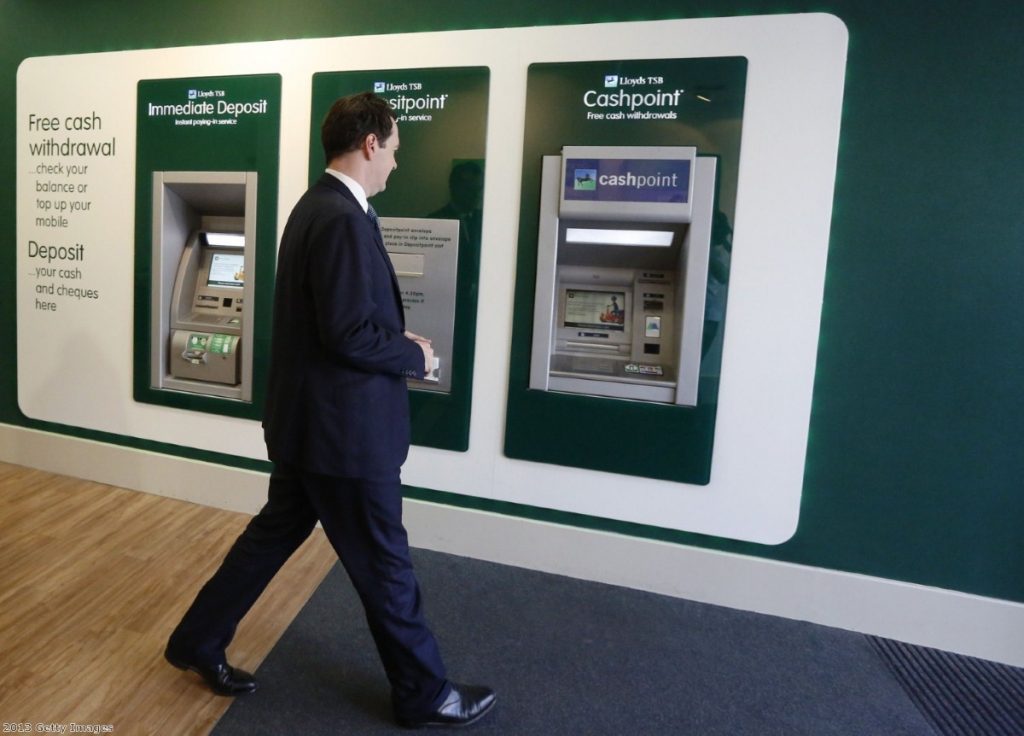George Osborne lost £230 million on state-owned bank sale
George Osborne lost taxpayers at least £230 million on the part sell-off of Lloyd's bank, despite having claimed to have made a profit, the government's spending watchdog have found.
Earlier this year, the Chancellor announced that he had sold 6% of shares in the state-owned bank at a substantial profit.
He described the sale as "another step in the long journey of putting right what went so badly wrong with the British economy" and claimed that the money would be used to "reduce the national debt by over half a billion pounds."
However, the National Audit Office (NAO) today found that this calculation failed to take into account the costs of bailing out the bank in the first place.


Once borrowing costs are taken into account, the Chancellor made a net loss of at least £230 million. Other financial experts calculate the real loss as much higher.
According to the NAO: "A simple comparison of the price at which the shares were bought with the sale price produces a gain for the taxpayer of just under £120 million. However, taking account of the cost of borrowing the money to buy the shares produces a shortfall of £230 million."
The findings will be an embarrassment for the government, who have recently come under fire for their sale of shares in the Post Office.
However the NAO today suggested that the loss on the Lloyds shares should be considered as a "justified" price for maintaining the stability of the banking sector.
"The shortfall of at least £230 million should be seen as part of the cost of securing the benefits of financial stability during the financial crisis, rather than any reflection on the sale process, which UKFI managed very effectively," they found.
The report also points out that the discount given to the market on the shares was relatively low compared to previous sales of this kind.
The government today acknowledged the NAO's findings but defended their decision to sell the shares at a relatively low price.
"The proceeds from the sale have reduced the national debt by over half a billion pounds but, as the NAO also rightly points out, the country has had to pay a high price for the extra debt it has taken on because of the financial crisis," financial secretary to the Treasury Sajid Javid said.









